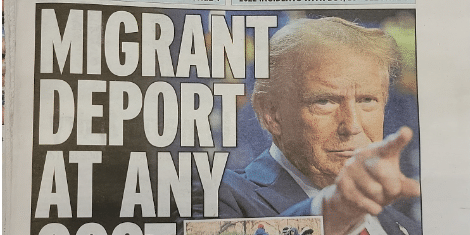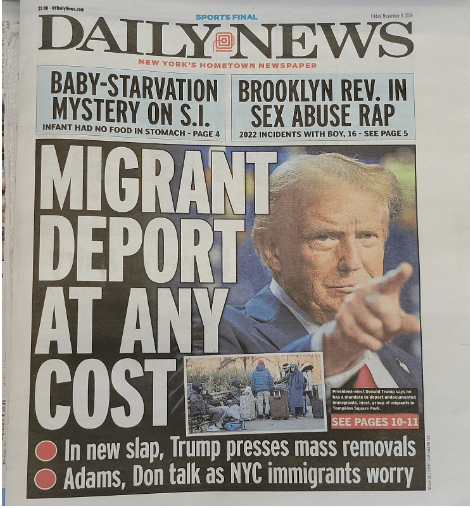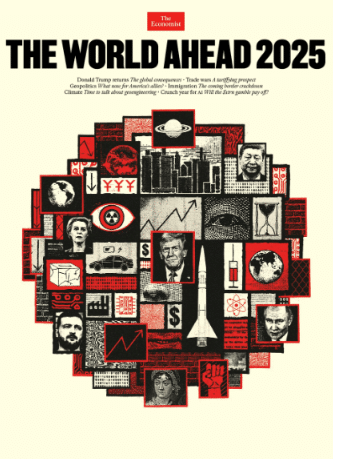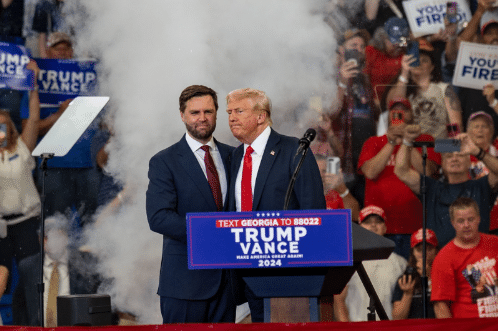
The Unfolding Battle Over America's Borders: What Trump's Mass Deportation Plan Reveals
Collateral Arrests: A Symptom of Deeper Dysfunction
As Donald Trump prepares for a historic second term, immigration enforcement once again takes center stage. Tom Homan, Trump's incoming border czar and former acting director of ICE, has made it clear: America’s immigration crackdown will lead to "collateral arrests." But what does that really mean?
In simple terms, collateral arrests refer to detaining individuals who weren’t direct targets of ICE operations. Imagine a sweep through a sanctuary city targeting specific undocumented individuals—but anyone without papers is fair game. Homan’s own words confirm that "sanctuary policies" have forced ICE agents to pursue criminals in communities rather than jails, creating collateral fallout.
This strategy shines a glaring light on a fractured system. Sanctuary cities, by refusing to cooperate with federal agencies, leave enforcement officers with little choice but to sweep broader nets. While political leaders in these areas paint their defiance as moral resistance, one has to ask: is it moral to defy federal law, even when the consequences ripple through local communities?
Federal Force vs. Local Defiance: A Brewing Showdown
Make no mistake: this isn’t just an immigration debate—it’s a battle over the sovereignty of federal law versus state and local power. Sanctuary city mayors, like Denver’s Mike Johnston, have vowed outright defiance. Some, like Johnston, have theatrically declared their willingness to face arrest rather than comply with ICE.
And then there’s California. The state legislature is ramping up efforts to shield undocumented immigrants, even convening special sessions to expand legal aid and limit cooperation with federal enforcement. To the untrained eye, this may seem like democracy in action, but let’s consider what’s really happening here.
What’s at stake is the integrity of the rule of law itself. If local officials can cherry-pick which federal laws they will follow, where does that lead? At its core, this conflict isn't about immigration—it’s about whether centralized governance can enforce its mandates in an increasingly fragmented political environment.
The Hidden Costs of a Broken System
Homan’s remarks also expose another reality: mass deportation is not just about legality—it’s about economics. President Trump has repeatedly linked illegal immigration to rising housing costs, job competition, and inflation. And while detractors call these assertions inflammatory, the numbers don’t lie.
According to the Department of Homeland Security, there are 11 million undocumented immigrants in the United States as of 2022. Their presence undeniably places strain on public resources. Housing prices, labor markets, and social services are stretched to accommodate a population that often operates outside the formal economy. For the average American worker or homeowner, these pressures translate into fewer opportunities and higher costs.
Yet, Trump’s plan goes beyond economics. By pledging to enforce immigration laws from day one, his administration is sending a message: no one is above the law, and no community is immune from federal oversight. Whether you see this as a restoration of order or an overreach of power, it’s clear that the stakes are higher than ever.
What’s Next? Predictions and Solutions
This clash between federal and local authorities isn’t going to resolve itself quietly. Expect a cascade of legal challenges, civil disobedience, and likely protests in sanctuary cities. The Biden administration's policies left behind a patchwork system ripe for exploitation; now, Trump’s approach seeks to tear it apart at the roots.
Here’s what this means for you:
- Prepare for Economic Disruptions
As deportations increase, certain industries like agriculture and construction—heavily reliant on immigrant labor—could see workforce shortages. This will ripple through supply chains and potentially drive up costs for everyday goods. Savvy investors should monitor these sectors for volatility and opportunities. - Watch for Political Fallout
Sanctuary jurisdictions will likely leverage their defiance to galvanize voter bases ahead of future elections. Federal funding cuts for these areas may trigger legal battles with implications for taxpayers nationwide. - Reassess Personal Risk
If you live in or near sanctuary cities, understand that ICE’s operational expansions could lead to increased federal presence. Be aware of your rights and how evolving enforcement measures might affect you or your community.
Closing Thoughts: Where Do We Stand?
America is at a crossroads, not just in terms of immigration policy but in its larger struggle to reconcile federal authority with local autonomy. The Trump administration’s mass deportation strategy is about more than border security; it’s a litmus test for the resilience of centralized governance in a fractured political landscape.
The question is: will this forceful assertion of federal power stabilize the nation—or deepen its divisions?
Your Next Steps
As the political and economic impact of these policies unfolds, now is the time to prepare. Equip yourself with the tools to navigate uncertainty:
- Free Resource: Download "Seven Steps to Protect Your Bank Accounts" and learn how to shield your assets in turbulent times. Get your copy here: Download Now.
- Exclusive Offer: Secure your discounted copy of "The End of Banking as You Know It" by Bill Brocius for just $19.95 (currently $49.95 on Amazon). Order here: Order Now.
Remember, informed action is the foundation of independence. Take control of your financial future before the tides shift further.
The financial market is crumbling and EVERYONE will be affected. Only those who know what's going on and PREPARE will survive... dare we say thrive. Our 7 Simple Action Items to Protect Your Bank Account will give you the tools you need to make informed decisions to protect yourself and the ones you love.











